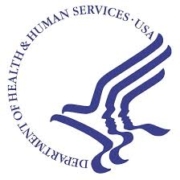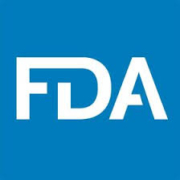The following is the latest information from the federal government as of 2:30 p.m. on Thursday, July 30.

- HHS’s Office of the Assistant Secretary for Preparedness and Response (ASPR) has published three new resources for providers:
- HHS’s Office of the Inspector General has updated its FAQs on its administrative authorities on arrangements directly connected to the COVID-19 emergency with new guidance for providers.
- HHS has issued a report documenting trends in the use of telehealth by Medicare beneficiaries during the COVID-19 emergency. Find HHS’s announcement about the report and its summary here and go here to see the report itself.
Centers for Medicare & Medicaid Services
CMS has announced that it is introducing new procedure codes to enable Medicare and other insurers to identify the use of remdesivir and convalescent plasma for treating hospital inpatients with COVID-19. These new codes go into effect on August 1.
- CMS has updated its FAQ for providers on Medicare fee-for-service billing The changes address:
- Use of the cost-sharing modifier for pre-surgery exams that include COVID-19 testing (pp. 10-11).
- Billing for COVID-19 testing provided in an outpatient department prior to an inpatient admission (pp. 21-22).
- Billing for diabetes self-management training services delivered via telehealth (two questions, one on p. 74 and one on pp. 74-75).
- Billing for telehealth services furnished by a provider located outside the U.S. (p. 75).
- Billing involving episodes of care for patients participating in a Medicare Shared Savings Program (five questions: 96-97, 97, 97-98, and two on p. 98).
- Billing when serving patients with the assistance of drugs or supplies from the Strategic National Stockpile or other government source (pp. 111-112).
- Billing for telehealth services (five questions: 126-127, 127, 127-128, 128, and 128-129).
- Billing for therapy provided via telehealth (pp. 131-132).
- CMS and the CDC announced that payment is available to physicians and health care providers to counsel patients at the time of COVID-19 testing about the importance of self-isolation after they are tested and prior to the onset of symptoms. CMS will use existing evaluation and management (E/M) payment codes to reimburse providers who are eligible to bill CMS for counseling services no matter where a test is administered, including doctor’s offices, urgent care clinics, hospitals, and community drive-through or pharmacy testing sites.
- See the CMS news release announcing the new policy and a new CMS counseling checklist.
- As part of this effort, CMS also has developed new talking points for providers,
- a guide for patients as they await the results of their COVID-19 test, and
- an overview of contact tracing for those who have just taken a COVID-19 diagnostic test.
- CMS has added certain COVID-19 diagnostic tests to its lists of tests that do not need to be ordered by authorized practitioners during the current public health emergency and for which Medicare will pay. Read about this addition here and find a list of other tests similarly authorized here.
- CMS has updated its “COVID-19 Emergency Declaration Blanket Waivers for Health Care Providers” with two changes:
- it extended the deadline for hospitals to submit their occupational mix surveys with supporting documentation to their MACs to no later than September 3 (it had previously been extended from July 1 to August 3) (see page 14) and
- it terminated its previous waiver of the requirement that long-term-care facilities submit staffing data through the payroll-based journal system (see page 15).
National Academies of Science, Engineering, and Medicine
- The National Academies of Science, Engineering, and Medicine’s standing committee on emerging infectious diseases and 21st century health threats has outlined considerations for clinical staffing needs during the implementation of crisis standards of care. It has produced a consultation document on this subject and will host webinars to brief stakeholders on Friday, July 31; Tuesday, August 4; and Wednesday, August 5. Find the document here and go here to register for one of the webinars.
Food and Drug Administration
The FDA has posted a new template for commercial developers to help them develop and submit emergency use authorization (EUA) requests for COVID-19 diagnostic tests that can be performed entirely at home or in other settings besides a lab, such as offices or schools, and that could be available without a prescription. See the FDA’s announcement here.
- The FDA has updated its guidance for laboratories performing COVID-19 diagnostic testing.
Centers for Disease Control and Prevention
- The CDC has updated its list of underlying medical conditions that increase a person’s risk of severe illness from COVID-19.
- The CDC has updated its preparedness tools for health care professionals and facilities responding to COVID-19.
Federal Funding Opportunities for Hospitals
- NASH has prepared a document that collects and presents in one place the various new federal funding opportunities for hospitals resulting from legislation addressing the COVID-19 public health emergency. Find that document here.
To receive this daily update directly, sign up for our mailing list at info@safetynetalliance.org.)

 CMS has
CMS has  The FDA has posted a
The FDA has posted a 